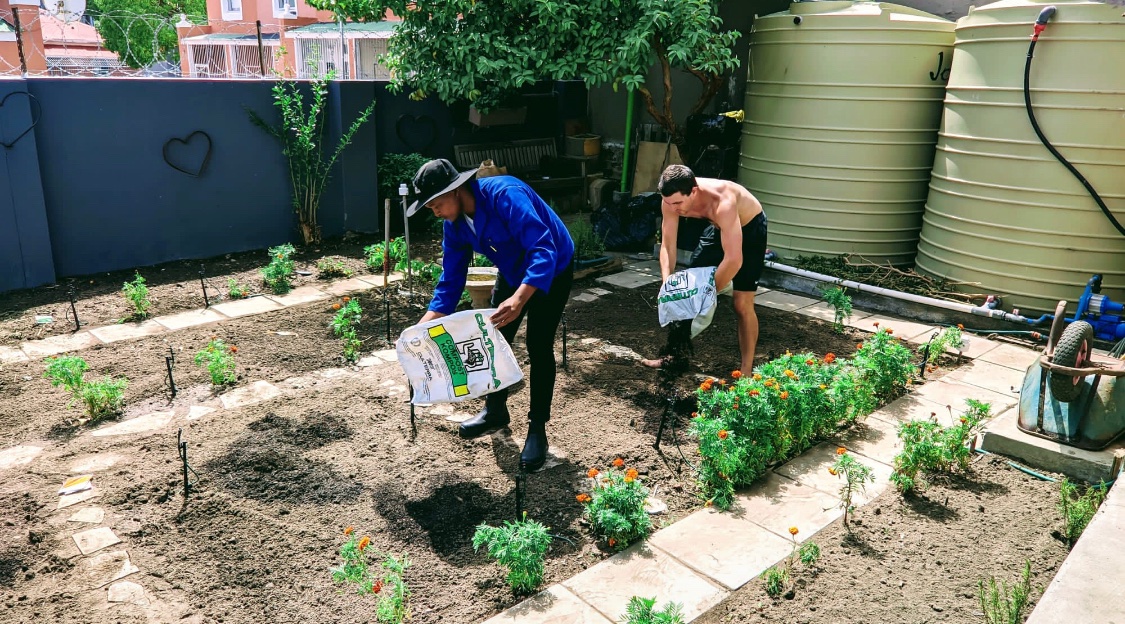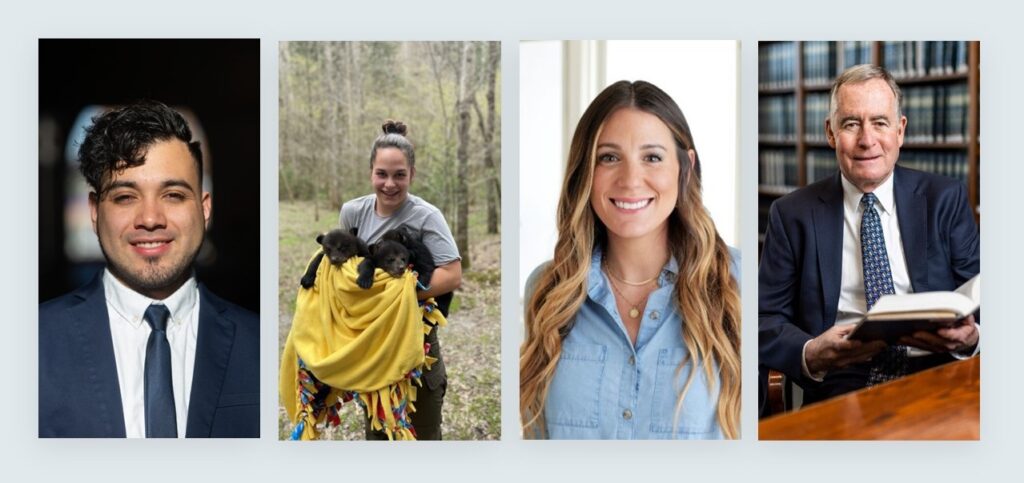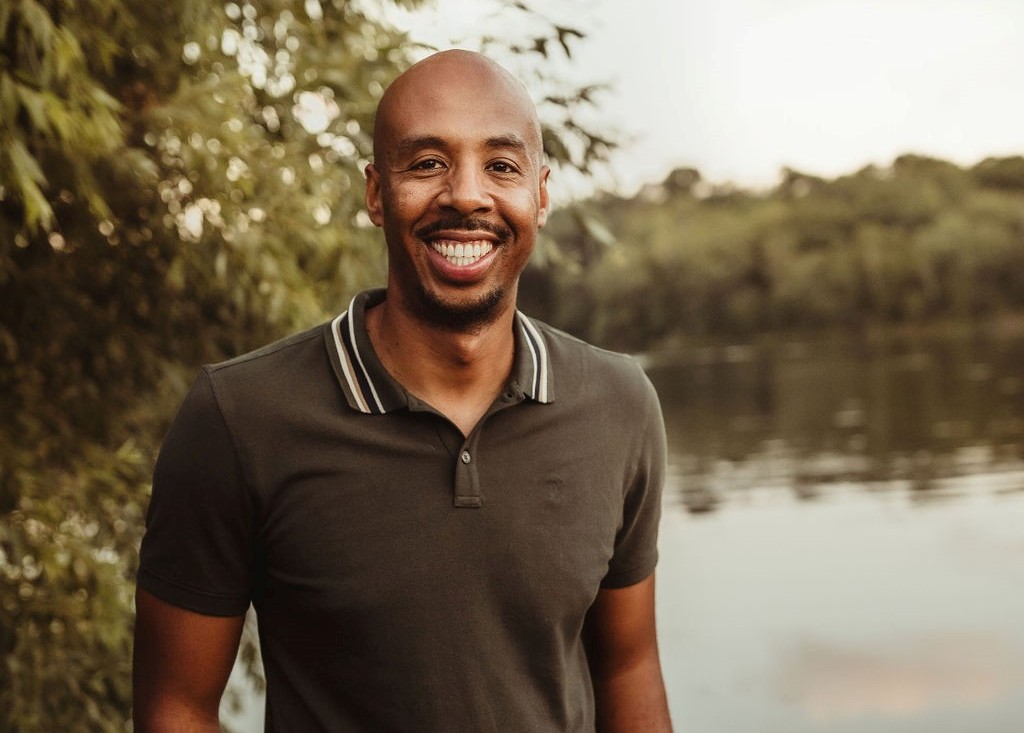As Jake Hodge ’21, a biology major at the University of St. Thomas, approached graduation, he packed up his belongings and prepared for an experience that would make him stand out from his fellow graduates in more ways than one.
He wasn’t going back to his home of Brainerd, Minnesota, or anywhere within an 8,000-mile radius. No winter jackets would accompany him on his trip, even though he was leaving in the middle of winter. The only things he needed for a trip like this was a passport, work boots and a heart for humanity. His next stop was South Africa.
Hodge is currently living just north of Cape Town with a host family. He is volunteering for two organizations centered around sustainability and agriculture. He lends a hand to locals whenever and wherever he can, ultimately living out the values instilled in him throughout his educational path.
Why sustainability matters
Hodge grew up in a household where he was “drilled” with questions revolving around science and environmentalism and was taught the value of using his acquired knowledge to help others. His parents both teach in the local elementary and middle school system in Brainerd.
“I remember in middle school, since my dad is a science teacher, he would read off news articles [to me],” Hodge said. “One day he was reading an article in Popular Mechanics, that I can distinctly remember, about global warming. I was in sixth or seventh grade and remember saying, ‘That seems like it is a really big deal,’ and he responded, ‘A lot of people don’t pay attention to it.’”
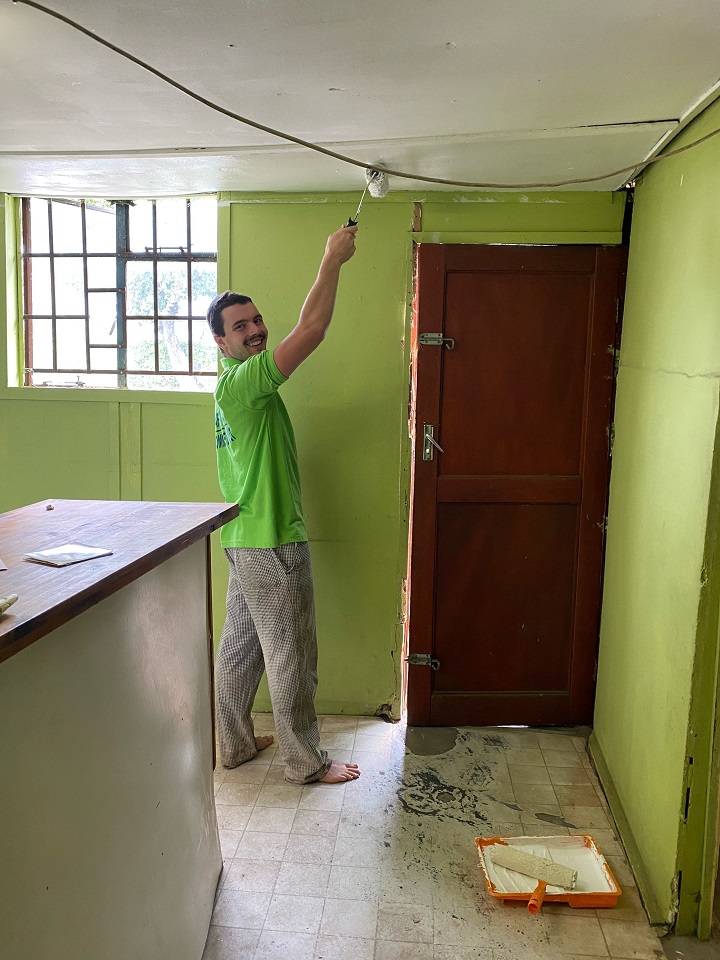
He points to this as the spark of his passion for sustainability that would eventually carry him across the globe.
“Nothing else really matters if we don’t have sustainability since it’s literally sustaining the entire human population,” Hodge said. “Whatever issues you find, it all reverts back to sustainability because if you don’t have that, you don’t have anything.”
A love for humanity that has no borders
Apart from sustainability, Hodge also has a heart for philanthropy, or “loving humanity” as he calls it. During his time at St. Thomas, Hodge exemplified a unique approach to his education by balancing school with several extracurricular activities focused on charity.
He was a Tommie Corps student scholar in 2020, volunteering as a food prepper with Catholic Charities for 150 hours during summer of his sophomore year.
“It was a ton of fun. I loved meeting and connecting with the staff and the patrons. Once I got done with the student scholar [opportunity] I just kept working there,” he said.
Hodge eventually joined Shelter Crew, the campus club that provides volunteer opportunities with Catholic Charities, providing transportation and connecting students with the organization. He later served as a student leader for the club.
In addition, Hodge worked at BrightSide Produce Minneapolis for the past year and a half.
“I started with just volunteering. They do corner store runs with produce to north Minneapolis. A lot of the smaller shops don’t have access to fresh produce at a reasonable price. Now I volunteer for BrightSide and am on the paid side of the organization,” he explained.
Hodge volunteers with what BrightSide calls the pay-what-you-can program. This program takes fees from the organization’s internal services such their paid subscription-based produce delivery system and uses the accumulated money to provide the same service to those who cannot afford the produce.
As an employee of BrightSide, Hodge puts his management and directing skills to test to the organization’s operations side by ensuring orders are in on time, produce orders are where they need to be and more.
Hodge also played club tennis, was a member in the pre-medical club on campus and conducted research in plant and soil science during his time as an undergraduate student.
“Jake is a really excellent example of somebody who understands that volunteer work and community work not only is a lifetime commitment, but also is a learning tool,” Senior Program Manager for the Center for the Common Good Casey Gordon said.
The crises in South Africa
Although the generous opportunities to hike in South Africa were appealing to Hodge, what excited him about the idea of living in Africa were the mountains.
“Originally I was going to go on vacation, and then I realized I was going to have five or six months off before I would start applying for medical school,” he explained.
After proposing the idea to Professor of Biology and BrightSide Club Director Adam Kay, he was able to get connected with a community in need of farmer support and put some of his skills to use.
“I just thought, if I am going to go on a trip, I might as well have something to do while I’m there.”
Kay, being well connected to South Africa through study abroad groups, guided Hodge and helped him set up a volunteer program with the organization Abalimi Bezekhaya.
For Abalimi Bezekhaya, Hodge works in African townships, informal settlements that began when the apartheid government forced people to move in the ’80s and ’90s. One of the biggest takeaways for him has been realizing the colonial government has caused many issues the people have to deal with, including mass poverty and poor harvesting habits. Hodge said about half of the residences in this area live in tin and zinc corrugated shacks.
“They moved people to really, really uninhabitable soil and bad areas called the Cape Flats. The one I worked in is a settlement of over 1 million people,” he explained.
A lot of the people who were moved out to these townships were not farmers to begin with and struggle with appropriate farming practices due to lack of training and guidance.
“They wanted to move them off the good land basically and move them to areas where they were ‘out of the way,’” he said.
The organization supports those battling with unemployment in South Africa and helps those interested in pursuing farming get on their feet. The unemployment rate in South Africa reached 34.9% in November, according to Statistics South Africa.
Hodge’s role is to visit different areas and conduct a 200-word assessment, with the help of a translator, to determine what the farmers are doing wrong in their practice so he can provide easier methods and solutions to them.
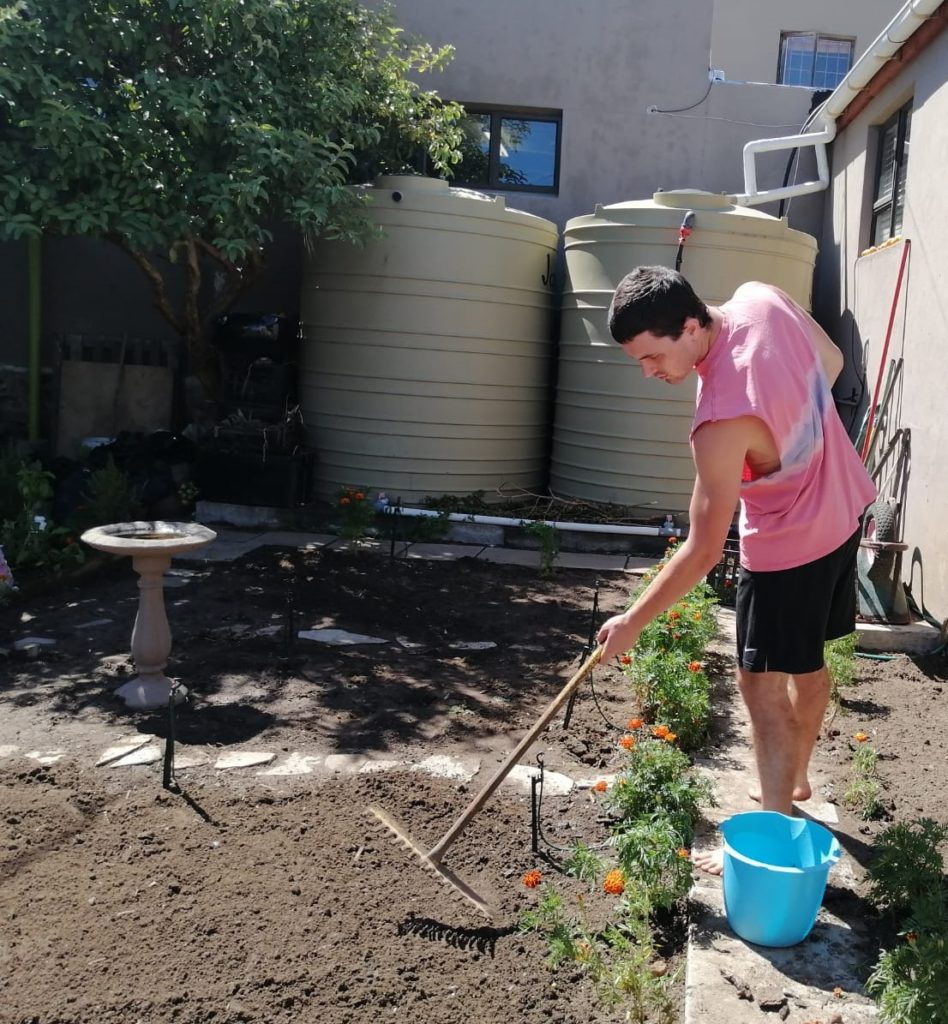
These solutions could be how to better compost or Hodge may give marketing advice so farmers can better sell their vegetables, for example.
In addition, he also contributes toward research projects the organization is conducting.
“Jake’s story shows how you can step into social justice work one step at a time and [eventually] be able to speak from a place of experience when you start to really get into advocacy,” Gordon said.
Hodge also volunteers at Usiko Stellenbosch, an organization that specializes in transitioning 8th and 9th graders into high school and transitioning 11th and 12th graders out of high school, two key phases in a student’s development.
“A lot of the high schoolers live in impoverished areas with high amounts of gang violence, trafficking and prostitution,” Hodge said. “[We] keep them off of the streets, help them determine where they want their life to go and help them get there.”
He teaches students practical lessons in farming such as how to grow food for themselves and others, and how they can do so sustainably through organic farming.
Hodge is a changemaker in these communities.
“St. Thomas really prepared me through the research opportunities [I did]. I worked in a couple plant research positions at St. Thomas and that was helpful for me, as I [can] answer a lot of questions because I have experience in planting,” he said.
He also said the school gave him role models who “ignited a passion” in him for volunteerism.
“I never would have come here if it wasn’t for the inspiration from other people,” he said.
Reasons to give back
Hodge’s mentality has always been that if he has extra time in the day, he doesn’t believe there is a better use for it than volunteering.
There’s some intrinsic sense of good in building a community.
Jake hodge '21
He continued, “There’s some intrinsic sense of good in building a community. You are always repaid in many different ways whether it’s the relationships that you form or the people you help. There’s always a way that it comes back to you.”
To those interested in helping these communities, Hodge said the most impactful way may not be what people expect.
“You can’t just throw money at the problem because that has basically created a handout government which is creating dependent people. It’s like the old saying, ‘If you give a man to fish, he eats for a day. If you teach a man to fish, he eats for a lifetime.’”
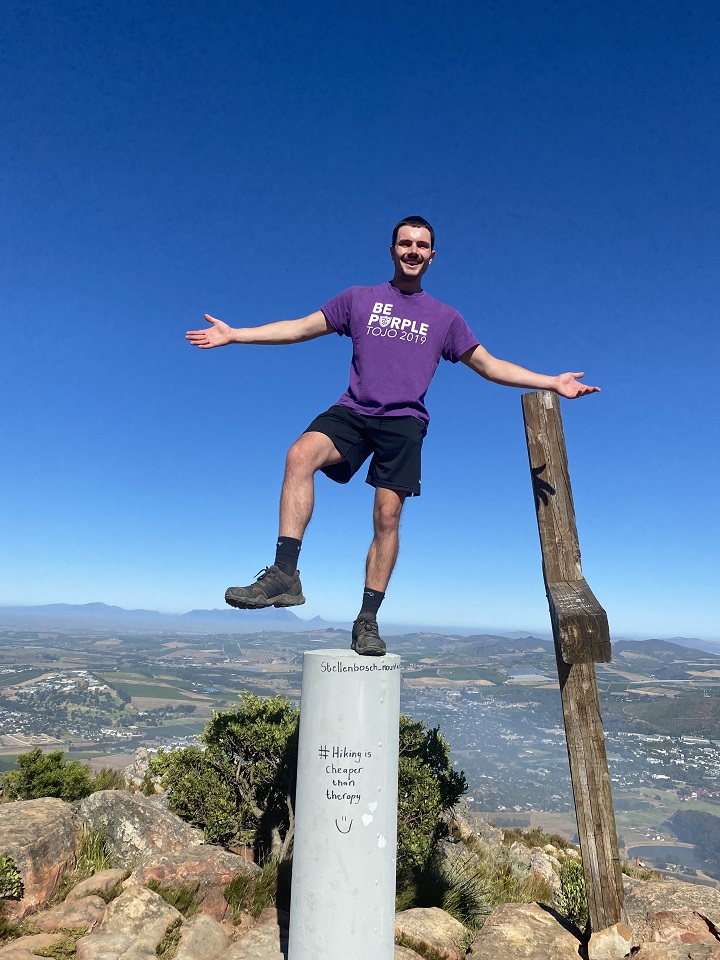
Hodge said this saying rings true in these South African townships.
“You really have to give them knowledge to be able to create their own wealth. The major issue is transitioning people from that stage of [handouts] to being able to create [their] own stuff with knowledge,” he said.
Educating these communities now will elevate people’s quality of life not just for the short term, but for generations to come.
